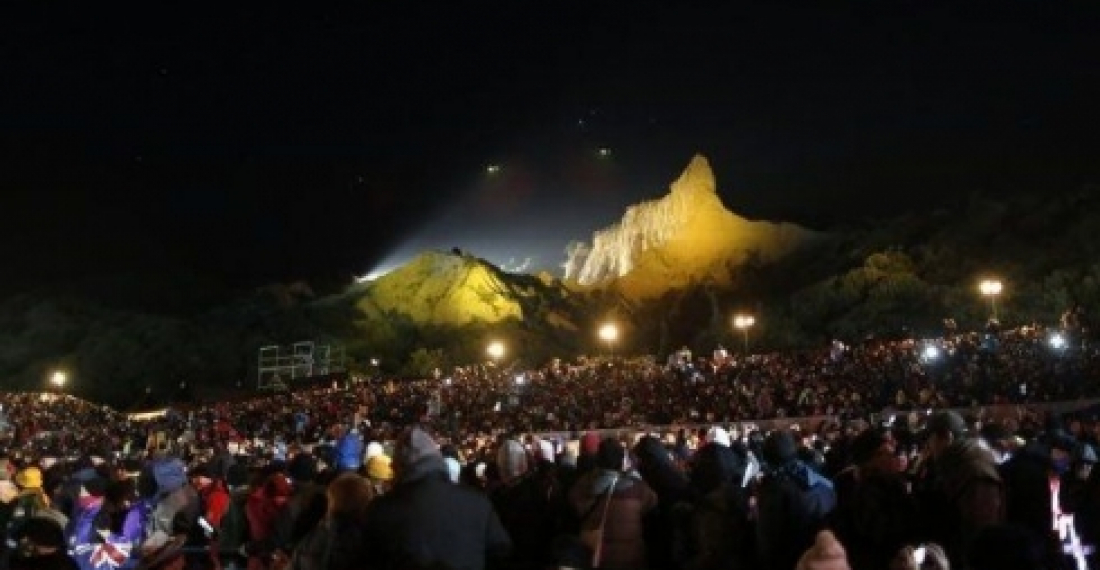Thousands of people from Australia and New Zealand this morning gathered on the Turkish peninsula of Gallipoli for for dawn ceremonies to mark the 100th anniversary of the start of one of the bloodiest battles of World War 1. The mourners were led by Princes Charles and Harry and a large number of international dignitaries. The death of thousands of soldiers from Australia and New Zealand during this campaign defined the identity of the two countries that were part of the British Empire. The day is commemorated as ANZAC Day
Australian Prime Minister Tony Abbott told a pre-dawn service at Gallipoli that Australian troops who fought there were the "founding heroes" of their country.
Paying tribute to his country's armed forces, New Zealand Prime Minister John Key said that his country has rarely been seen as aggressors - but that is exactly how they were seen by Ottoman Turks in 1915.
He said that Gallipoli had become a by-word for the best characteristics of Australians and New Zealanders "especially when they work side by side in the face of adversity".
Nearly one million soldiers fought in the Gallipoli Campaign, half of them Ottoman Turks defending the peninsual, and the other half mainly from the British Empire. Both sides suffered heavy losses amounting to tens of thousands.
source: commonspace.eu
photo: Pre dawn Commemoration of ANZAC Day on the Gallipoli Peninsula in Turkey on 25 April 2015 (picture courtesy of BBC).







